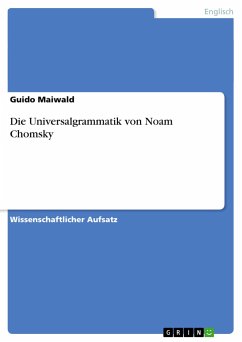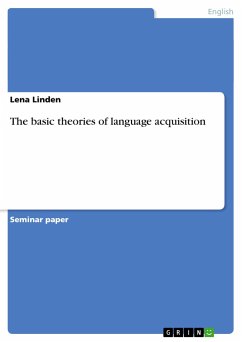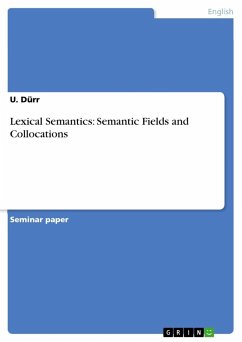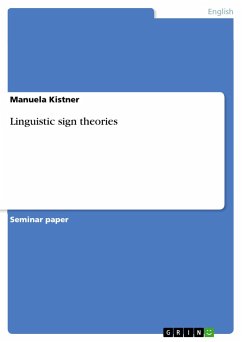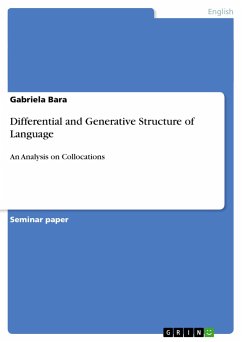
Differential and Generative Structure of Language
An Analysis on Collocations

PAYBACK Punkte
0 °P sammeln!
Seminar paper from the year 2005 in the subject English Language and Literature Studies - Linguistics, Technical University of Braunschweig (Englisches Seminar), course: Teaching English Grammar and Lexis, language: English, abstract: The theory and methodology of early linguistics took the notion of structure as a key term and emphasized the idea that language needed to be organized. In the 70s, under the influence of pragmatics, language was no longer seen as an abstraction, but as a means of communication between people, and the primary purpose of language became the exchange of meaning. Si...
Seminar paper from the year 2005 in the subject English Language and Literature Studies - Linguistics, Technical University of Braunschweig (Englisches Seminar), course: Teaching English Grammar and Lexis, language: English, abstract: The theory and methodology of early linguistics took the notion of structure as a key term and emphasized the idea that language needed to be organized. In the 70s, under the influence of pragmatics, language was no longer seen as an abstraction, but as a means of communication between people, and the primary purpose of language became the exchange of meaning. Since language essentially deals with naming of concepts, the importance of lexis replaced the role played by grammatical structure. The idea was that meaning is primarily carried by lexis, because focus on communication implies emphasis on lexis and decreased emphasis on structure.In this paper, I will discuss the central ideas of Saussurean structuralism, in particular the notion of differential structure, then I will present the innovation brought in linguistics by Chomsky's generative structure, namely the universal nature of language as opposed to Sassure's idea about the uniqueness of language, and finally, I will analyze collocations in the light of these two structuralist theories.This paper does not intend to show the differences and incompatibilities between the structural and lexical approaches, but the point of coincidence and agreement between the two, namely the way meaning is defined through difference under the exercise of choice.




